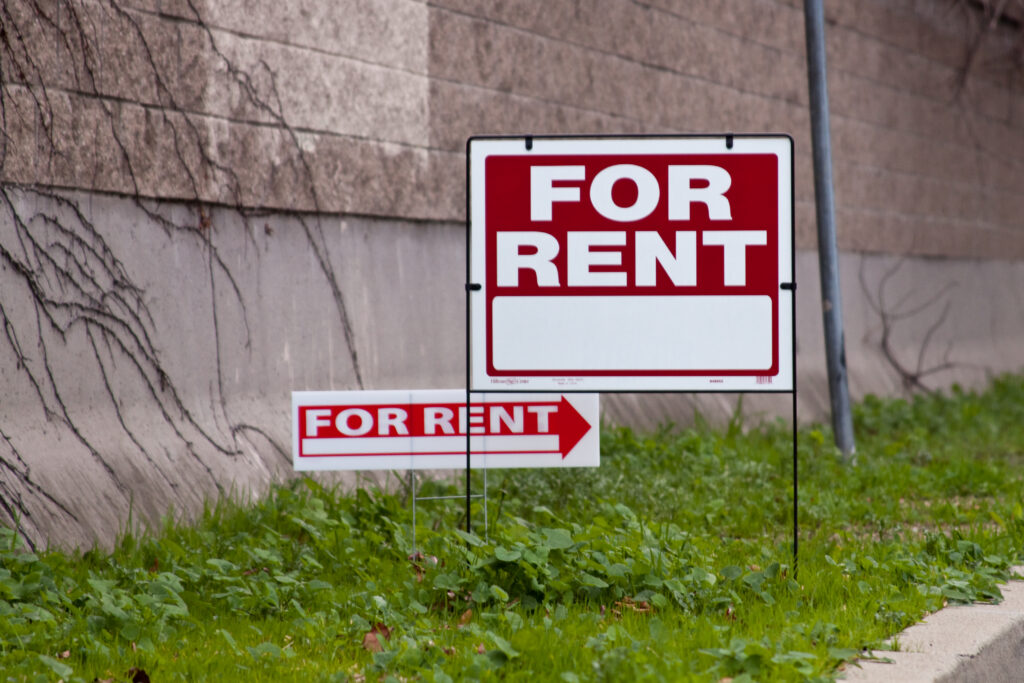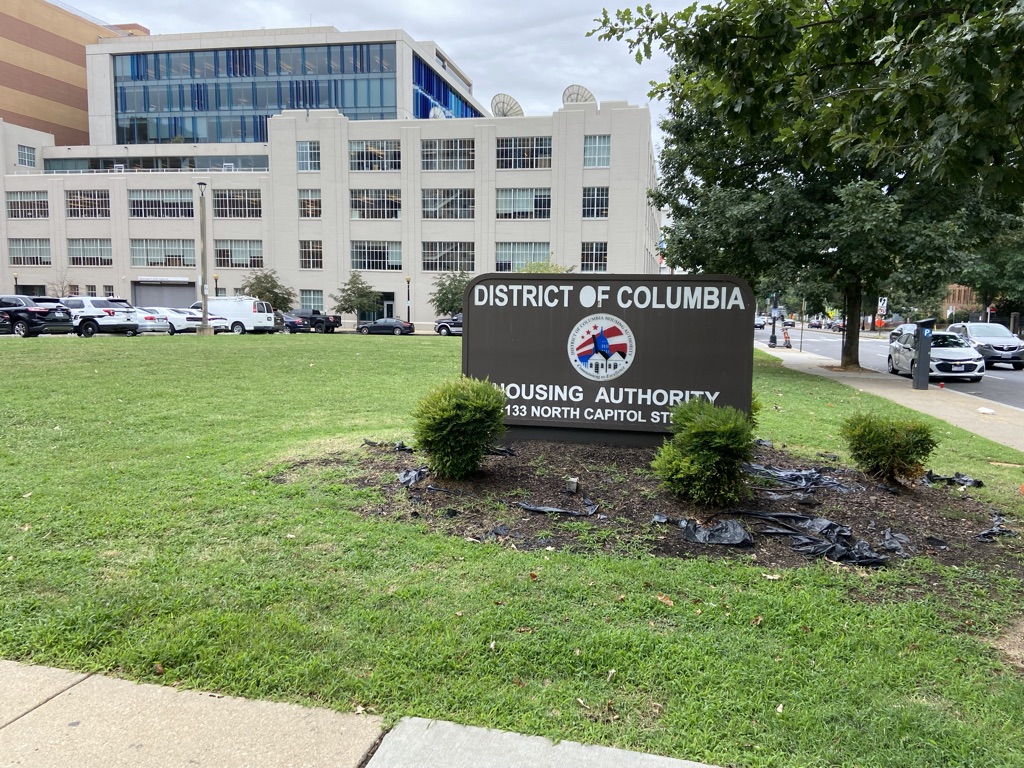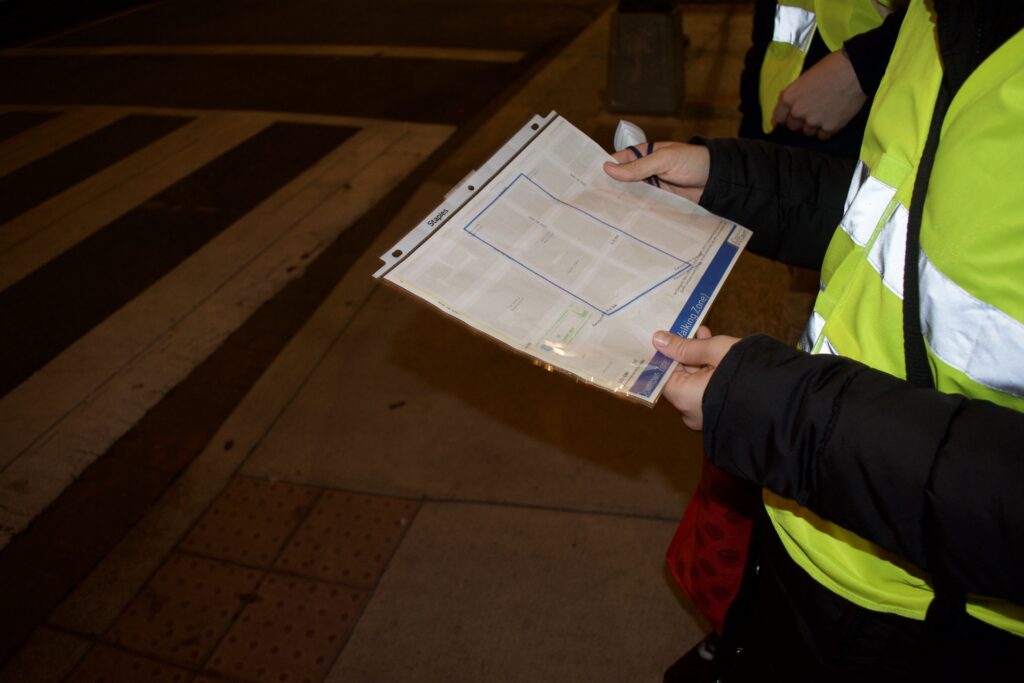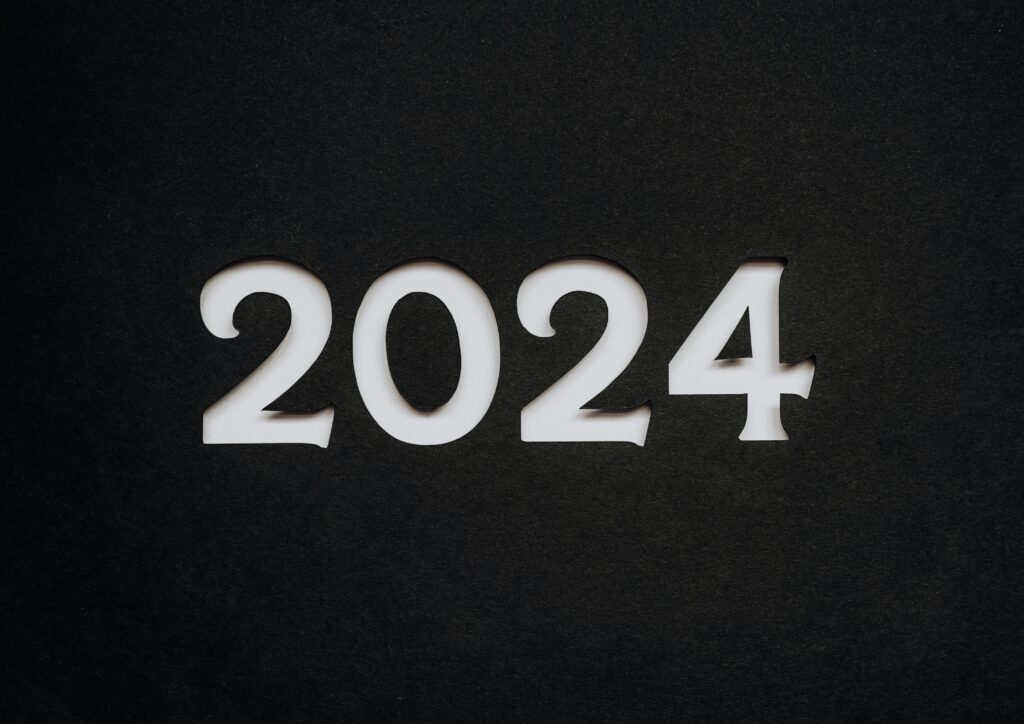The D.C. government is making progress in housing people with its record number of vouchers, but people familiar with the process say the wait is still far too long.
D.C. began fiscal year 2022 with 2,400 new Permanent Supportive Housing (PSH) vouchers for individuals experiencing homelessness but was slow to move people into housing, creating what many decried as a “voucher backlog.” Over the last year, data from D.C.’s Department of Human Services (DHS) shows the city has been making strides. By April 2023, D.C. connected all 2,400 vouchers to people who needed them, and began distributing an additional 500 housing vouchers funded for fiscal year 2023. But complicating factors — including an inability to contact people who were previously matched with a voucher — mean that D.C. reported in June that it had just over 900 vouchers left to distribute.
Being connected to a voucher is just the first step in the process. About 1,200 people already connected to a housing voucher funded in FY 2022 are still waiting to move into housing as of Aug. 1. In interviews with case managers, advocates and voucher applicants, Street Sense and The DC Line heard the system is still inefficient and burdensome, as housing providers contend with staffing challenges and government bureaucracy.
In an interview, DHS Interim Director Rachel Pierre highlighted the progress D.C. is making but noted that more work remains.
“We are not going to be satisfied until honestly, all the vouchers are used,” Pierre said. “One more night for someone for whom we have the resources to move into housing being on the street is not acceptable to us. However, we have to be very realistic about our system’s capacity.”
Pierre now expects all vouchers funded in 2022 and 2023 will be matched by March of 2024. She said that people will move into housing within a few months after being matched with a voucher but declined to give a more specific target.
The delays can be traumatic for someone trying to move into housing while also managing their mental and physical health. “We know that this process, these gaps — it wears on the individual,” said Chandra Dawson, vice president of housing services at the D.C.-based nonprofit Friendship Place.
D.C.’s historic voucher funding
Permanent Supportive Housing (PSH) vouchers are widely seen in homeless services as the best resource for people who have experienced chronic homelessness. A person is chronically homeless if they have been unhoused for over a year or multiple times over three years and also are struggling with a mental illness or disability that makes it difficult to find or keep housing. The PSH voucher funds long-term housing, along with supportive services, in an effort to provide stability.
Homeward DC 2.0, the city’s official plan to end homelessness, recommends the city create between 3,100 and 5,500 new PSH vouchers for individuals by 2025. D.C. took the first step in 2021 when the D.C. Council voted to raise taxes on the highest-income residents to fund a stunning new 2,400 vouchers, nearly doubling the PSH program. Advocates initially touted the new funding as a game changer for homelessness in D.C., but the mood had soured by the summer of 2022 due to concerns about implementation.
In order to move into housing with a PSH voucher, a person has to go through several steps. They’re first matched to the voucher, and then assigned to a case manager who will help them through the rest of the process. They then have to apply for the voucher officially, enter the PSH program and finally find housing.
As case managers and outreach workers came back to work in person as the pandemic waned, the homeless services sector struggled to keep and hire staff. At Friendship Place, staffing was dismal when Dawson started in 2021. Staff had been heavily impacted by the pandemic, Dawson said, and it was difficult to get people to come into the office, or hire staff willing to work in person.
Without a case manager assigned to them, almost 900 people languished in a liminal state during 2022, knowing they would qualify for a voucher but with no idea of when they could move into housing. DHS numbers show that in the final three months of FY 2022, only 30 people were newly assigned to case managers, and the wait time for getting a case manager grew from 60 days to 150, according to testimony from DHS Director Laura Zeilinger.
By October 2022, the start of the next fiscal year, D.C. had moved just 600 people into permanent housing, using one-quarter of the vouchers funded. Other jurisdictions across the country struggled to lease up all federal vouchers they received during the pandemic, providers have shared at national conferences. But some localities have had success — one Continuum of Care in Texas was able to house nearly 800 people in six months.
That November, the D.C. Council held a hearing on the voucher backlog. Providers testified that not only didn’t they have enough staff but there were delays in every step of the process. Once case managers submitted voucher applications, it took the D.C. Housing Authority (DCHA) nearly 100 days to process them, according to Will Doyle, director of housing operations at Pathways to Housing, another local nonprofit housing provider.
“Implementation delays are much worse than we ever expected,” D.C. Fiscal Policy Institute Deputy Director of Legislative Strategy Kate Coventry testified. At the current rate, she said at the time, it would take D.C. at least three years to house all 2,400 people.
In her testimony, Zeilinger admitted officials were having trouble scaling up the voucher system. But the government was working on improvements, she assured. She was confident all 2,400 people could be in housing by October 2023.
As of Aug. 1, just 1,133 people have moved in, according to DHS data.
Pierre, who is serving as the agency’s interim director while Zeilinger is on sabbatical, said a variety of complicating factors have forced an extended timeframe.
“While we were very excited about the influx of vouchers in fiscal year 2022 and 2023, I don’t think people appreciate that it almost doubled the size of a program that we had been building for the past 10 years,” Pierre said. “But that doesn’t mean that we haven’t stepped up to the occasion.”
Getting everyone matched
In February, after the National Park Service closed a 70-person encampment at McPherson Square, At-Large Councilmember Robert White — the newly minted Housing Committee chair — called on D.C. officials to create an emergency plan to clear the voucher backlog. The city responded a month later with a list of existing initiatives, many of which Zeilinger outlined in the hearing.
DHS began offering hiring and retention bonuses for providers and eliminated some barriers, making positions easier to qualify for and more lucrative. Providers could draw down the bonuses, which ranged from $1,500 to $3,500 based on the position, starting in November 2022. The bonuses are available through the end of this fiscal year, according to an agency spokesperson. DHS hopes to continue them into fiscal year 2024 but hasn’t yet found the funding to do so.
The agency also changed some eligibility requirements for case managers in spring 2022, allowing more college degrees to count as a qualifying educational background and reducing the number of years of experience needed from four to two. In the spring of 2023, the agency implemented similar measures for flexibility in hiring supervisors.
DHS also launched a new permanent housing division and added more staff to support the process, Pierre said.
DHS also launched “Operation Make Movement,” which set up a program to help people prepare their voucher applications while they wait for a case manager, so they’re ready to apply as soon as one is assigned. By May, 186 clients had gone through Operation Make Movement. DHS said the initiative was successful, having cut the process by 22 days.
Over the spring, some of the obstacles in the system started to shake loose, providers said. In a June meeting, DHS said all FY 2022 vouchers had been matched at least once. But because some vouchers were matched to people who were subsequently deemed ineligible or with whom case managers lost contact, 648 vouchers turned over, with 414 vouchers still available. With the 500 new vouchers funded in FY 2023, there were 914 vouchers left to match by October 2023.
Those 648 vouchers turned over partially because of the severe backlog, those familiar with the process say. In 2022, the city made the decision to continue pairing people with vouchers, even though there were no case managers available to help them, according to updates provided at meetings of D.C.’s Interagency Council on Homelessness (ICH). By the time a case manager tried to reach out, providers could not always find the person.
If newly assigned case managers know just the general area where a client who lives outside sleeps, they may have to walk the area trying to find them, Dawson said. The government may have closed an encampment where the person was living, or the person might have moved for another reason. Dawson estimated that case managers citywide have lost contact with between 15% and 20% of their assigned clients during the process.
While waiting, 39 people who were unhoused and matched to a PSH voucher or some other housing resource died in 2022, according to a report from a June 13 ICH meeting.
The ongoing workforce shortage
For the over 1,200 people still waiting to move into housing with an FY 2022 voucher, the challenge is not over. Providers agreed there are two main roadblocks: staffing and bureaucracy.
On the first count, Pierre acknowledged that some providers continue to struggle but said others are now fully staffed.
“Staffing is not as challenging as it used to be. Does that mean all key positions are filled? No, it does not,” said Dawson.
When Jaydot, a D.C.-based housing consultant, launched its PSH program last year, staff shortages prevented them from taking on clients for the first nine months, said Sharlene Castle, the director of operations. While Jaydot received dozens of applications for staff positions, it had to reject over half at the outset because they didn’t meet the DHS-set minimum requirements, such as having a bachelor’s degree or two years of experience. The organization now has two case managers. Its contract authorizes a much bigger program, but that would require more staff.
Castle said Jaydot offered jobs to at least two people who declined because the salary was too low, even with incentives. That occurred even though Jaydot boosted the pay the organization would get from DHS via its other revenue streams, an option that isn’t feasible for all organizations.
“Every PSH provider right now has the exact same job description,” Castle said. “I think that the pay is really the big thing.”
N Street Village, which administers site-based PSH programs, has been facing many of the same staffing challenges, said Leora Ibraheem, the organization’s chief program officer.
The organization is part of a coalition of providers advocating for the Social Work License Modernization Amendment Act, which is now before the D.C. Council. It would eliminate an exam requirement that has historically disadvantaged Black social workers. Providers argue that since social workers already need a college degree and hundreds of hours of experience to obtain a license, the exam is an unnecessary barrier. Doyle, from Pathways, has testified that the organization would have been able to hire dozens more case managers without the exam requirement.
People with lived experience are also advocating for changes in licensing requirements that would allow them to become case managers, since they’re already familiar with the housing process. DHS is launching a peer case management institute this fall.
Finally, some providers said they would like to see the agency provide more flexibility in administering job requirements such as one year of experience. They’re also hoping DHS continues to offer staffing incentives like the bonuses.
The 90-day wait for approval
While DHS is the government entity that connects clients to providers, it’s DCHA that handles the voucher application process. And a lack of responsiveness and clarity at the beleaguered housing authority has led to applications entering what many providers call “a black hole.”
“It is still quite challenging for providers to reach individuals within the agency,” Dawson said. “That’s another day and another day and another day.”
Under Jaydot’s arrangement with the D.C. government, when its case managers help clients prepare voucher applications, they are sent to DHS. That agency then forwards those applications to DCHA. At first, Nicole Jean, director of programs, told her clients it would take about 30 days to hear back, but she no longer does so.
“We are now trying to get away from even giving a time frame,” Jean said. “All we can tell clients is we’re waiting to hear.”
Once the voucher application reaches DCHA, it can take a while to even show up in the agency’s system — one client submitted his application on May 15, and it didn’t show up until July 27, Jean said.
It’s still taking at least three months for DCHA to approve applications, according to Lynn Amano, director of advocacy at Friendship Place. Her colleague Dawson said both DHS and DCHA have improved communications, but lags in the process remain.
“I can lose a participant in that time. They become disengaged,” Dawson said of the consequences of the delays. “When they’re now eight to nine months into the process, they’re not ready to move in. They want it, but they’ve lost that motivation, momentum.”
DCHA still has a goal to process applications in 30 days, a spokesperson for the agency wrote in an email to Street Sense and The DC Line, and is “taking steps to improve our processing times.”
There are several other reasons an application might get stuck, Dawson pointed out. Sometimes voucher applicants are slow to respond to case managers or extra time is needed to obtain documents such as birth certificates from other government agencies. But some of it feels like unneeded bureaucracy, providers said.
For instance, Jesse Rabinowitz, senior manager for policy and advocacy at Miriam’s Kitchen, said one of the organization’s case managers worked with a client who completed an application but did not check the boxes indicating each section was done. DCHA denied the application, apparently on that basis. Similarly, some of Dawson’s clients have forgotten to fill out just one line, a quick mistake that sets them back to the beginning of the process.
As case managers try to sort through these issues, DCHA often does not respond to their inquiries, providers said. Jaydot has to send all communications through DHS first to get answers, Jean said.
DCHA is aware there are some gaps in communication, the spokesperson wrote, and is working to develop an internal tracking system that would sync up with the DHS system to provide faster updates on the status of applications.
To speed up the housing process, case managers at Jaydot help clients look for housing while they wait for their voucher. By doing so, some clients can point to the building they want as soon as they’re approved, and move in quickly.
But providers hope to see broader and more comprehensive procedural improvements. For years, they’ve called for DHS and DCHA to create a portal that would let applicants track their status and allow agency workers and case managers to quickly resolve issues, rather than going through a slow chain of communication. While DCHA is cautious about a single portal, given privacy concerns, the agency is working to allow voucher holders to upload documents via a new participant portal. Rabinowitz, meanwhile, suggested locating the entire process in DHS, which is how the program used to operate.
Redesigning the process
As part of an effort underway for nearly a year now, The Lab @ DC — a design and research team based in the Office of the City Administrator — hopes to make the PSH applications easier to fill out, reducing the number of mistakes case managers have to fix.
The redesign project started in the fall of 2022 at the request of both DHS and DCHA, Civic Design Manager Karissa Minnich said.
It can take up to two hours to fill out a voucher application, Minnich said. Because the packet includes multiple forms, some information is requested over a dozen times. With so many pages, it’s more likely that clients might accidentally leave a question blank, or make a typo.
The Lab is working to consolidate the forms and make them easier to fill out, Minnich said. Once the new forms are released later this year, she hopes to see a reduction in the time it takes to fill out an application. The team is also working to develop additional recommendations on how to improve the voucher process, but can’t yet share specifics. Pierre said she’s eager to see the proposals and identify ways the city can further improve and reduce wait times.
In March, DHS also announced plans for a central repository to connect people to units they could live in once they have vouchers. It can often be hard for voucher holders to find a place to live, as they face discrimination in renting and also have government-imposed limits on how much rent a voucher can cover. DHS says the repository will launch in September and hopefully cut the long wait times for people who have been assigned a housing voucher
Challenges at DCHA do not end once people have their vouchers. The agency has to inspect and approve all units voucher holders rent. Inspections can take up to two weeks just to schedule, while some providers say they can do them within 24 hours. DCHA has also recently implemented a rent reasonableness process, as per U.S. Department of Housing and Urban Development regulations. To prevent the agency from overpaying landlords, staff need to verify the rent of each unit a voucher holder wants to lease up, which some providers say is already resulting in longer wait times.
The PSH voucher program has also been under criticism for its administration once people are in housing, as a recent Washington Post article reported. Clients are supposed to receive supportive services to provide stability, but some voucher holders and property owners say those services are lacking.
This spring, the D.C. Council approved a budget with only 230 new PSH vouchers, with legislators saying the sizable backlog showed a lack of capacity to handle a further expansion. To fulfill the most ambitious recommendations in its 2021 plan to end homelessness, D.C. would need to fund and distribute another 2,300 vouchers in FY 2025 — which would be another huge influx the system may not be ready for.
“We need to start planning for that now,” Rabinowitz said.
This article was co-published with The DC Line. It has been updated from the one that appeared in print to include comments from Interim DHS Director Rachel Pierre, to clarify a reference to the percentage of people case managers have lost contact with citywide and to correct a reference to the number of years of experience needed to become a case manager.







